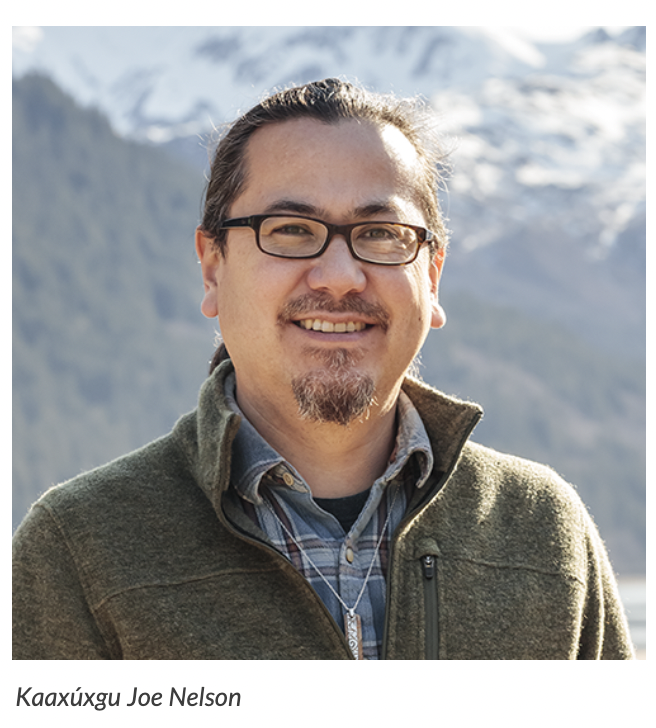
- Details
- By Tripp J Crouse - KNBA
This story was originally published by KNBA on December 13, 2021. Read the original story at KNBA. Republished by Native News Online with permission.
The Alaska Federation of Natives is the largest convention of Alaska Natives in the state.
Affectionately called “Native New Year,” the convention is an opportunity for Indigenous people across the state to come together and develop important state and federal policy.
The convention is virtual for the second year out of concerns for the coronavirus pandemic. But that doesn’t diminish the importance of the two-day virtual event.
Kaaxúxgu Joe Nelson is the Sealaska board chair. He was elected as co-chair of Alaska Federation of Natives in 2020.
“I got elected during the virtual convention a little over a year ago now, and obviously, I've been there many times before that, but last year know falling into this position during a pandemic is just a bunch of mixed emotions, I guess, because we're still in it.”
This will be the second year that the AFN convention is virtual. Organizers hoped to postpone the convention in the hopes of meeting in-person, but eventually decided to go virtual.
“It's going to be a different year virtual, but we have a great team that delivered it across all the different channels last year. It seems to work OK. We're looking forward to doing it again and then seeing everybody, even if we're not face-to-face and engaging,” Nelson said.
AFN’s theme this year is “ANCSA at 50: Empowering the future.”
Nelson says this year’s convention will revisit the time since ANCSA’s passage, but also look to the future of Alaska Native policy.
“At this convention, we actually will be looking back a little bit and understanding and reminding ourselves of the history of AFN,” Nelson said. “And then at the same time, though, we're quickly pivoting and looking forward to the future here and all the challenges that are still really upon us.”
Day 1 will include a panel discussion on the 50 years since the passage of the landmark Alaska Native Claims Settlement Act or ANCSA, as well as an address and panel from military leaders.
More Stories Like This
Native News Weekly (August 25, 2024): D.C. BriefsNavajo Nation Mourns the Passing of Former Vice President Rex Lee Jim
Deb Haaland Earns Endorsement From Communications Workers of America Local 7076
University Soccer Standout Leads by Example
Two Native Americans Named to Democratic Congressional Campaign Committee's“Red to Blue” Program
Help us defend tribal sovereignty.
At Native News Online, our mission is rooted in telling the stories that strengthen sovereignty and uplift Indigenous voices — not just at year’s end, but every single day.
Because of your generosity last year, we were able to keep our reporters on the ground in tribal communities, at national gatherings and in the halls of Congress — covering the issues that matter most to Indian Country: sovereignty, culture, education, health and economic opportunity.
That support sustained us through a tough year in 2025. Now, as we look to the year ahead, we need your help right now to ensure warrior journalism remains strong — reporting that defends tribal sovereignty, amplifies Native truth, and holds power accountable.
 The stakes couldn't be higher. Your support keeps Native voices heard, Native stories told and Native sovereignty defended.
The stakes couldn't be higher. Your support keeps Native voices heard, Native stories told and Native sovereignty defended.
Stand with Warrior Journalism today.
Levi Rickert (Potawatomi), Editor & Publisher
